XAMPP is a free and open-source tool that is basically used to create a local copy of the site on your computer for testing purposes. This is a lightweight and cross-platform application that makes it quite simple for web developers to test its plugins, themes, and other things. Xampp comes with Apache and MySQL which are the two main components for its installation. Apache is used to create a local server while you can use MySQL to manage or save data on a local server for the website.
This server is used to test PHP pages. It lets you create a local webserver where you can test any plugins, themes, and other things before applying them on the live WordPress site. That way you can protect your WordPress site from getting potential errors. So, let’s get started and know the proper method to install and configure XAMPP on Windows 11/10.
How to Install XAMPP on Windows 111/0
Open your web browser and head over to the Apache Friends downloads page. On the next page, download the respective version for your Windows 10 PC.
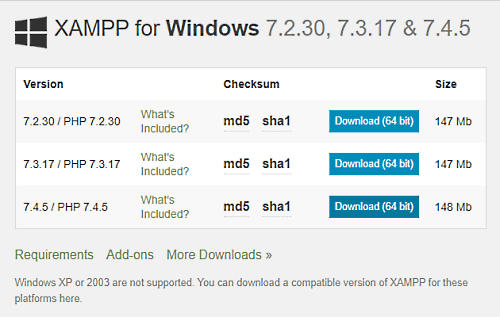
Once it gets downloaded, navigate to the download folder of the File Explorer and launch the XAMPP installer.
If User Account Control prompts on the screen, click on the Yes button to give your consent.
During this, a warning message may come to appear. As you click on the OK button, it opens the XAMPP Setup Wizard on the screen. Then hit the Next button to proceed.
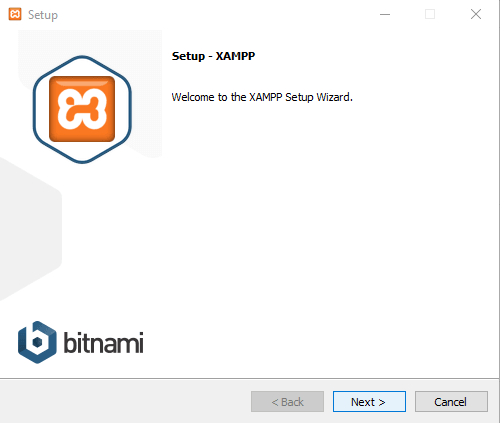
On the next screen, there are a variety of components that you need to select for the installation process.
Since these options are essential to run the software, therefore leave it as it is and click on the Next button.
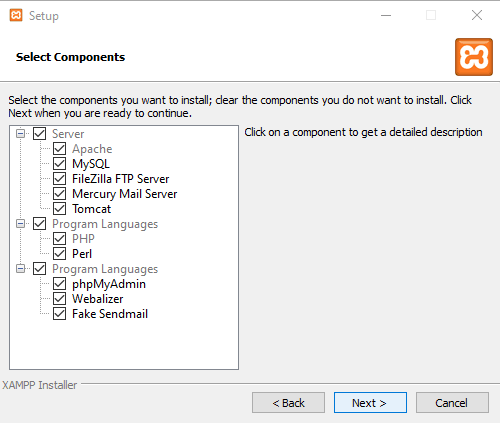
Thereupon, select the folder location where you want to install the XAMPP files.
By the way, we recommend you use the default installed location. And then hit the Next button.
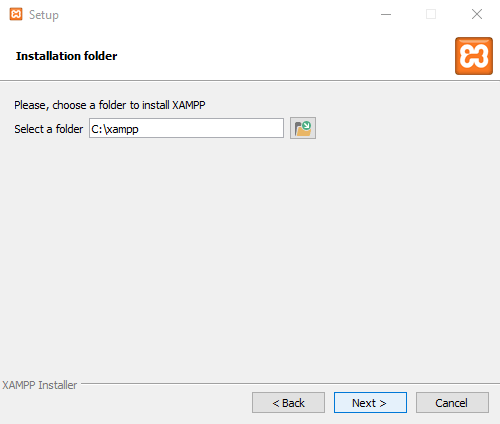
Since XAMPP Control Panel for Windows supports different languages, so select your preferred language and click Next.
On the Bitnami for XAMPP Page, just hit the Next button. In case you want to know about the Bitnami, then select the checkbox next to Learn more about Bitnami for XAMPP.
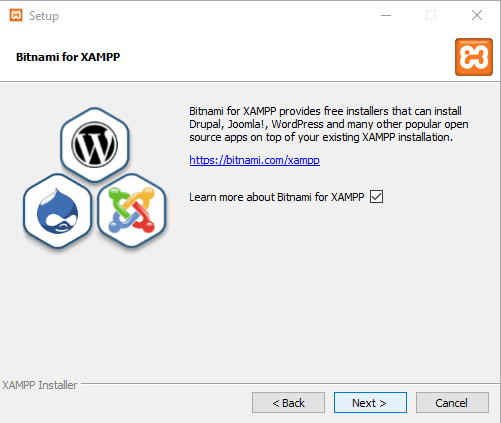
Now the setup is ready to start the installation process on your device, so again click the Next button to proceed.
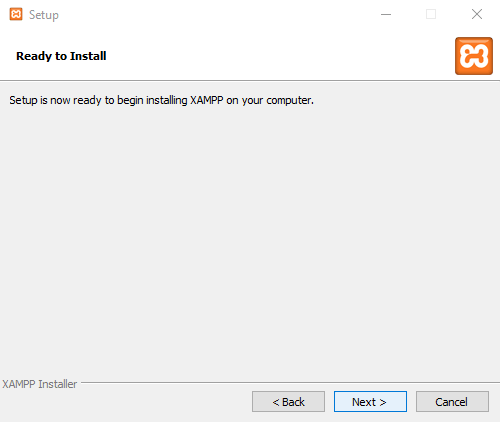
Here you may need to wait for a while until it completes the installation.
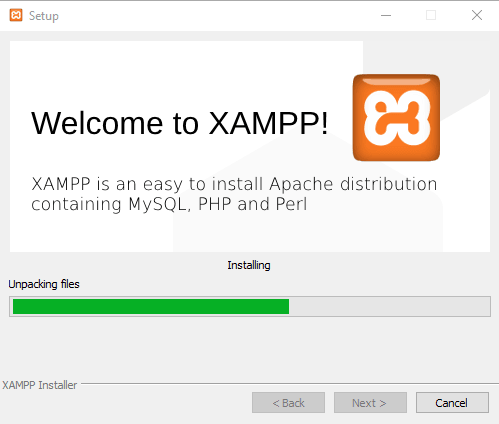
After the proper installation, you will be prompted with a window asking you “Do you want to start the Control Panel now?”.
Select the checkbox and click on the Finish button.
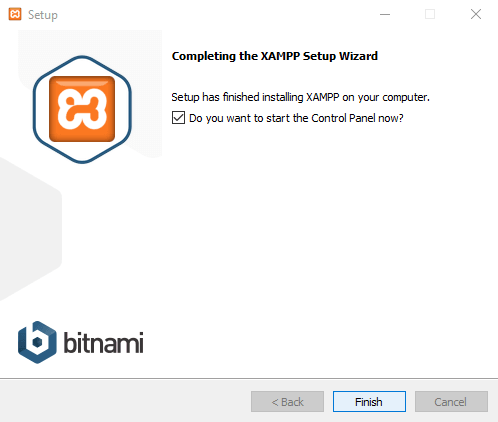
How to Configure XAMPP on Windows 11/10
To configure the XAMPP on Windows 11/10, you may need to run the XAMPP application as an administrator.
So, click on the Start button and type XAMPP.
Doing this, the “XAMPP Control Panel” starts appearing in the best match. Now right-click on it and select Run as administrator. If UAC asks you for permission, click on the Yes button.
When the XAMPP Control Panel opens, you will see a list of web services under the Module section.
Here you first have to activate the Apache and MySQL services by clicking on the respective Start button that is available under the Actions section.
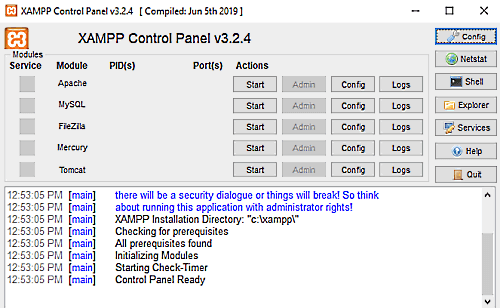
Here you first have to activate the Apache and MySQL services by clicking on the respective Start button that is available under the Actions column.
As soon as you click on the Start button, the PID and the Port number of the corresponding services become visible. Also, the respective services under the Module section turn out green.
Likewise, you can also start the other services if you need them.
In order to access the administration dashboard for every single service, click on the related Admin button.
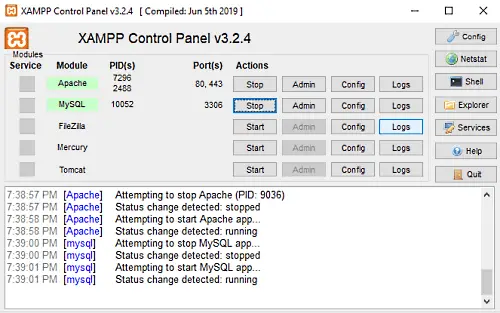
On the right end of the page, you will see a list of options such as Config, Netstat, Shell, and others. These options help you to configure different aspects of the XAMPP Control Panel.
Click on the Config button to open the configuration window of the Control panel.
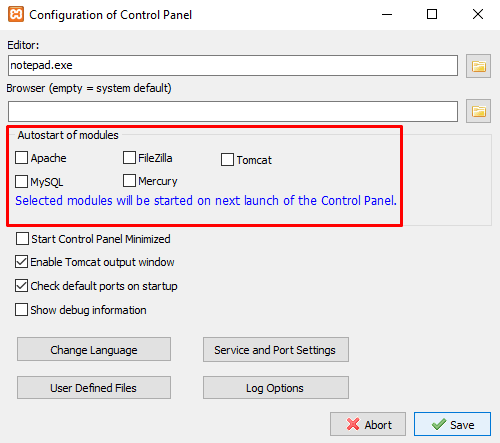
Select the checkbox of the Modules which you want to start automatically when you launch the application. Then, click on the Save button to save the changes.
Next to the Config button, you will find the Netstat button. Clicking on this button provides a list of services that are currently accessing the network.
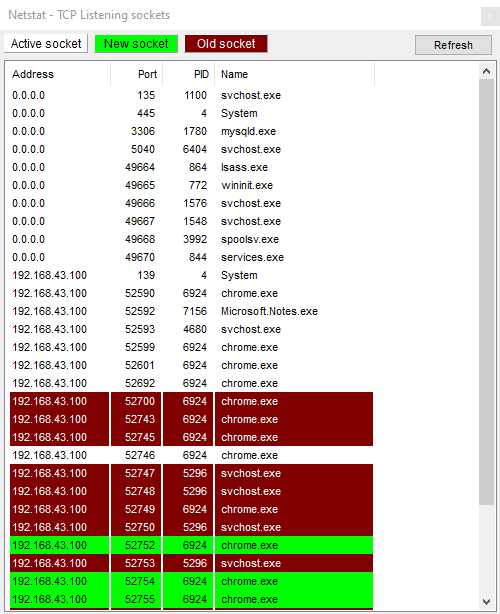
It consists of the executable file name, process ID information, port number, and their respective TCP/IP address.
XAMPP Control Panel also offers you a log section of each specific service. It is the first service you choose to check out when something is wrong and the function doesn’t work properly.
That’s it. I hope after reading this guide, it has now become pretty easy for you to install and configure the XAMPP on your Windows 11/10.